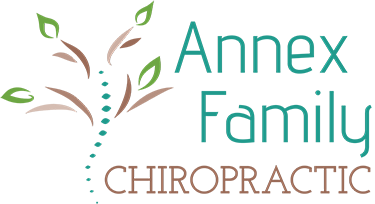Toronto Chiropractor: 738 Spadina Ave, Ste. 206, Toronto, ON, M5S 2J8416.967.4466
By Jeff Willmore, Landmark Forum leader
Nothing is so reckless as waiting for certainty—that’s a game we are sure to lose. Anyone who runs a business, chooses a mate, or just drives down the street knows there’s a risk. Stimulating those risks is inseparable from living. Our preferences can often tend toward comfort, familiarity, safety—but in opting for those, we often miss out, even to the point of giving up advancement, intimacy, adventure. We’ll have explanations as to why we hold back, perhaps telling ourselves it’s easier to deal with what has to be avoided than what can be imagined, created or committed to.
While those decisions might have the “appearance” of freedom, they at the same time can limit what’s possible. Among the major themes to which literature repeatedly turns—love, loss, identity, ambition—none may be richer and more consuming than regret (regret about some lack of action or initiative, regret that we did or didn’t express something, regret that we didn’t live our lives fully).
In Beckett’s well known play Waiting for Godot, Vladimir and Estragon—two hapless fools—wonder how to live, how to move forward. They sit and wait. They wait throughout the entire play—for some kind of sign to go in one direction or another, some kind of guidance or insight, or person or entity that never comes. When the play ends, they have gone nowhere—they are where they started.
Estragon: What do we do now?
Vladimir: I don’t know.
Estragon: Let’s go.
Vladimir: We can’t.
Estragon: Why not?
Vladimir: We’re waiting for Godot.
Estragon: Ah!
When we get wrapped up in our circumstances, concerns, and points of view, we can lose sight of what’s possible, settle for less, and essentially adapt to things as they are. When the possibility of power, effectiveness, and freedom arises, there’s a concern we might not be able to live up to the possibility—a lack of confidence. Lack of confidence and holding back go hand in hand with the thinking: “Is the ball going over the fence? …It’s not going to go over the fence.” What’s worth knowing about that back-and-forthness is that it’s all a conversation—notions that live in language. Actually, the question of whether something will happen or not is irrelevant to the phenomenon of possibility. There is no certainty as an inevitability, or predictability of the outcome—we’re the ones saying something is possible, something is not. Something is doable, something is not; something is difficult or something is easy.
Creating a breakthrough, stepping out, taking new ground requires disrupting our old conversations. The skill of the twenty-first century could be said to be the ability to learn, unlearn, and relearn. Unlearning is required when the conversations we revert to no longer work, or the world has changed so completely that they are now holding us back. When we recognize our old patterns, own them, transform them, we’re able to invent our lives from what could be. Beyond just showing up and living life day after day is the ability to choose and create a future we really want and make the difference we’re out to make. There is no right place to begin, and we may not know what to do or how to do it, but the pull is there to move what we see or imagine as possible into action. It requires a certain audacity, clarity, and fearlessness. Being alive is an inherently risky proposition.
Steve Jobs, Lady Gaga, and David Tench come to mind as just a few contemporary examples of jumping into that “risk space,” and acting on their vision with no certainty of the outcome. Jobs believed that people with passion can change the world for the better and the people who are crazy enough to think that they can are the ones who actually do. Getting fired from Apple, according to him, was the best thing that ever could have happened, as it gave him the freedom to be a beginner again. His belief was that art and commerce, complicated ideas and simple packages, could merge into a universal aesthetic. He put a computer inside a phone, the phone into millions of pockets. He changed lives, defined an era, and is a testament to expanding people’s sense of the possible. Lady Gaga, in an interview about a recent album, talked about the curtain never closing, about finding the “you” that makes you a champion of life. With her singing talent, social networking, and guts, she redefined pop culture and parlayed her popularity into effective advocacy for causes that make a difference. David Tench, a British lawyer, while less well known, irked by the lack of consumer rights, became a powerful spokesperson and catalyst for people standing up to companies and retailers over shoddy products. Governments around the world took up the cause, laws were passed, and here, too, the game was changed.
These outcomes were not “out there” in the circumstances as an independent reality to be recognized either accurately or inaccurately. Rather they were “realities” that arose in language. Real power occurs when we know we have something to say about the way things are—that we have a voice, that we have access to the state of affairs beyond just reporting on them. If all we can do is report, our access to what’s going on is trivial (à la Vladimir and Estragon). When we invent ourselves by our saying—we begin an excursion into possibility. In Helen Keller’s words, “Security is mostly a superstition. It does not exist in nature, nor do the children of men as a whole experience it. Avoiding danger is no safer in the long run than outright exposure. Life is either a daring adventure or nothing.” Creation is a great risk, and a kind of ultimate risk—it’s the willingness to take a stand with no evidence and no propping and no proof. It’s hard to provide evidence, or make any real argument for a place where life can show up as a creation, but it is in that domain that the full world available to us in being human can be explored and lived. To be alive is to be at risk, to be free is to be at risk, and to be powerful is to be at risk.



